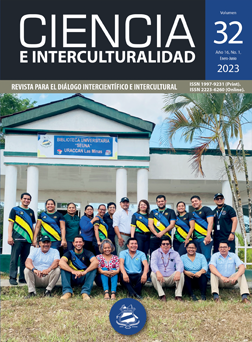Legal pluralism and administration of justice on the North Caribbean Coast of Nicaragua
Abstract
This research has analyzed the guidelines established in the current legislation that allows the recognition, respect and validity of legal pluralism in the North Caribbean Coast of Nicaragua.
It is a qualitative study. It uses symbolic interactionism that attributes paramount importance to the social meanings that people assign to the world surrounding them, the interpretation that ancestral traditional authorities and justice operators give to existing legal systems based on current regulations. The documentary research served to collect data and to know the cultural or scientific contributions of the past.
The analyzes suggest that there are objective and subjective causes that limit the effective coordination between both systems of law, such as language barriers, lack of adequate legal advice, and multiple functions of community judges in the exercise of the administration of justice. It is concluded that although the constitutional reforms show a formal recognition by the State of the legal power of indigenous and Afro-descendant peoples to administer their local affairs, a greater rapprochement is necessary between the authorities that administer justice to understand the different systems of norms and their practice, as well as the definition of legal lines for this purpose.
Downloads

This work is licensed under a Creative Commons Attribution-NonCommercial-NoDerivatives 4.0 International License.
El autor mantiene los derechos morales y permite la cesión gratuita, exclusiva y por plazo indefinido de sus derechos patrimoniales de autoría a la Universidad de las Regiones Autónomas de la Costa Caribe Nicaraguense (URACCAN).






